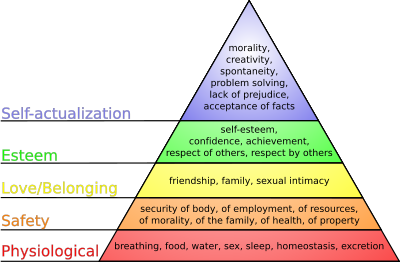According to Arendt, (1958),
"Labour is the activity which corresponds to the biological process of the human body, whose spontaneous growth, metabolism, and eventual decay are bound to the vital necessities produced and fed into the life process by labour. The human condition of labour is life itself".
In contrast Arendt, (1958), defines work as,
"The activity which corresponds to the unnaturalness of human existence"
Reflecting on these quotes I believe cooking dinner is definitely an everyday necessity and process of labour otherwise we would not survive for long (I know I wouldn't!). The food we process by labour is consumed basically straight away and has no enduring quality unless there are left overs! However, as I have stated in a previous blog, my cooking has components of work in it as it can be a choice and is something I enjoy doing that allows me to be a responsible human being and helpful family member.
On Thursday night it was my night to make dinner, I didn't exactly feel excited to cook as I was tired from the week, however this had to be done. I had put the corn beef in the slow cooker during the day so all I needed to do was prepare vegetables to go with it. I was planning to go to the gym so I was aware of my time constraint. I decided to do my favourite vegetables, kumara, pumpkin, carrots and broccoli. I had to make sure I prepared enough as we had a guest coming over for dinner.
This brings up the question, why is there a need for this occupational service? Well I cook for different reasons (sometimes labour, sometimes work) however, in this case it was a labour role. Maslow's Hierachy of Needs shows the basic fundamentals for survival including water, food, shelter, and surviving illness which all need to be met for one to survive and have a balanced life.

Comments I have posted on other students blogs:
References I have used throughout my six blog postings:
Arendt, H. (1958). The Human Condition. Chicago: Chicago University Press.
Baer, R. (Ed.). (2006). Mindfulness Based Treatment Approaches: Clinician's Guide to Evidence Base and Applications. United States of America: Elsevier Inc.
Creek, J., & Lawson-Porter, A. (Eds.). (2007). Contemporary Issues in Occupational Therapy. Chichester: John Wiley & Sons Ltd.
Christiansen, C. & Townsend, E. (2004). Introduction to Occupation: The Art and Science of Living. New Jersey: Pearson Education Inc.
Creek, J., & Lawson-Porter, A. (Eds.). (2007). Contemporary Issues in Occupational Therapy. Chichester: John Wiley & Sons Ltd.
Christiansen, C. & Townsend, E. (2004). Introduction to Occupation: The Art and Science of Living. New Jersey: Pearson Education Inc.
Hagedorn, R. (2000). Tools for Practice in Occupational Therapy: A Structured Approach to Core Skills and Processes. Edinburgh: Churchill Livingstone
Visser, (1986). Much Depends on Dinner. New York: Grove Press




No comments:
Post a Comment